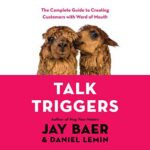The conventional method when you have plans to hire an employee is to request a resume and then do a face to face interview. The belief is that if you see the candidate you will use your gut impressions to determine the candidate’s fitness.
However, doing a face to face interview after only having a chance to review a candidate’s resume will introduce bias into the hiring process causing you to, often, make a bad hiring decision. The candidate’s physical features, the way they dress, and the way they talk can play a major role in biasing the screening process.
Moreover, too many interviews suck at asking questions that will reveal the true qualities of a candidate. They ask the ubiquitous questions like “Tell me about your strength and weakness”, or “Tell me about a time when you were a team player” or even worse yet “Tell me about a time you made a mistake”.
These questions are predictable questions and candidates have rehearsed their answers over and over.
I sit on a panel at the US Air Force Academy each month where soldiers, sailors and airman transitioning out of the armed forces learn about their options after a military career. Of course, I talk about the path of entrepreneurship but the rest of the panel talks about how to write a resume and how to practice for a job interview. Often the candidate is more prepared for the interview than the interviewer given the vast amount of free resource that is available to help the candidate prepare for it.
Moreover, let’s face it, the candidate will never tell you the truth. They will tell you what you want or expect to hear.
Imagine asking a candidate “What interested you about this job” and the candidate responding with “Oh, nothing special, I am not working currently and the bills are beginning to pile up at home. I saw that you have a job opening, so here I am.”
In addition, in any face to face interview, you will also be influenced by what is known as a mirror bias. The mirror bias effect means that due to our own narcissism, we tend to appreciate more those who are like us.
I can tell you that you don’t want a clone that shares your strengths, especially in a small business. You need someone that has complementary skills to you as the owner. If you are a people-person you are, often, better off hiring a data-person. If you are an idea-person you should look for a process-person.
So now that we looked at what not to do, what can you do to improve the way you hire an employee?
Your best bet is to administer a blind aptitude test also called pre-employment tests to determine the competency of the person before you have a chance to see or speak to the candidate and use it as a screening tool. Many large companies like Macy’s, PetSmart, Walmart, Burger King, just to mention a few, use pre-employment testing.
When I hired my editor on a freelancing site I could see that she scored a 98% on an English spelling test. It also showed how long it took her to complete the test as well as her overall ranking among other test takers placing her in the upper 20% percentile among her peers on the platform. Moreover, since there is no face to face interview I can more easily make a judgment call without letting my biases come into play. That said some freelancing platforms like Upwork.com suspended its skills testing in June of 2019 which is unfortunate.
Googling “pre-employment test” + the skill you are hiring for will provide search results of organizations that will administer and score test to a prospective candidate for a small fee. For example, if you are hiring for a web developer and Google “pre-employment test for web programmer” the top result is TestDome where you can select different skills test.
When you do finally get to the face to face interview, forgo the typical questions where the candidate will either provide a well-rehearsed answer or tell you what you want to hear. Instead ask them something like, “What do you know about our company?” to determine if they even bothered to do some research before showing up. Or “If you just won $10 million dollars but learned that you have only 6 more months to live how would you spend your time?” The candidate’s responses to these types of unexpected questions along with their aptitude test scores will tell you a lot more about how well they will fit with your organization.
When you hire an employee is your processes flawed and influenced by with your biases?












